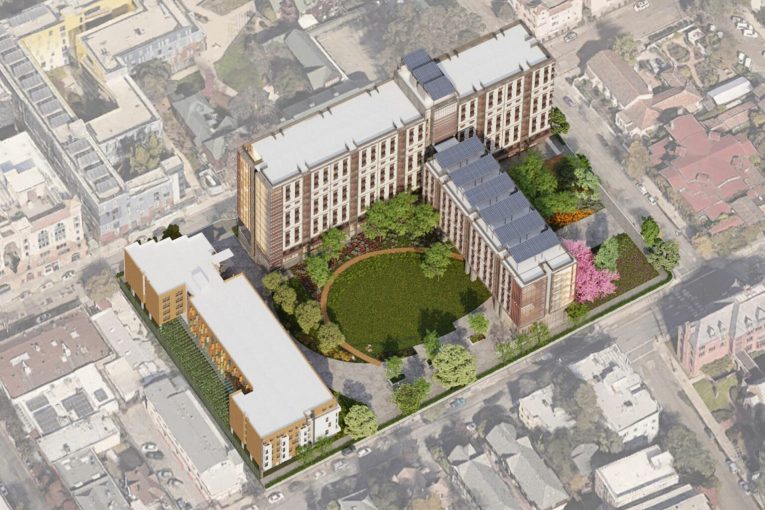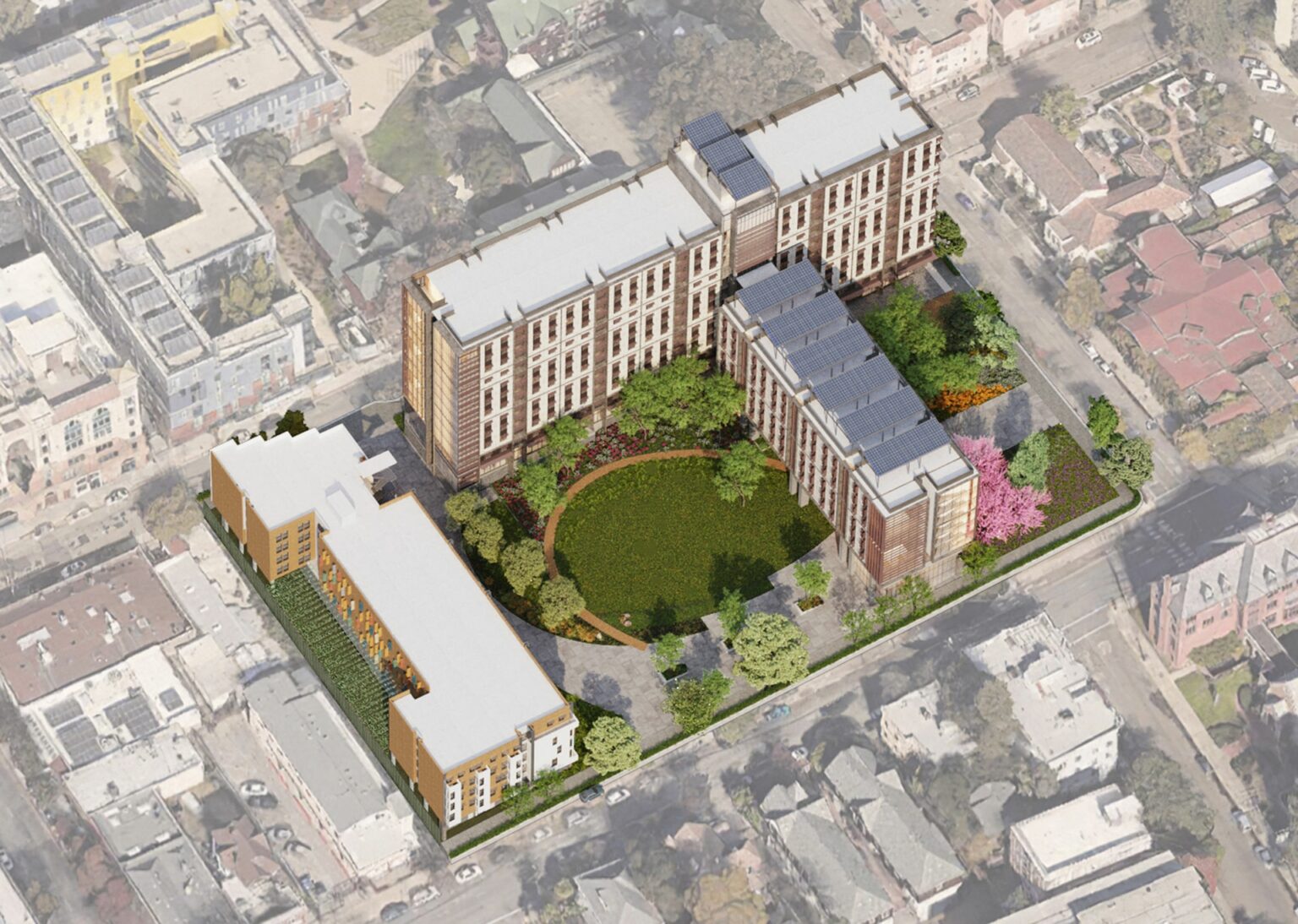

By David M. Greenwald
Executive Editor
Berkeley, CA – On Thursday, the California Supreme Court issued a ruling allowing UC Berkeley to proceed with plans to build housing at the People’s Park.
In response to the housing crisis, and concerns about housing insecurity, UC Berkeley announced plans to develop the iconic People’s Park near campus.
However, the project has generated opposition.
As a result, opponents challenge the certification of an environmental impact report (EIR) that evaluates both the specific housing project at People’s Park and a broader plan to guide long-term physical development at UC Berkeley.
Plaintiffs Make UC a Good Neighbor and People’s Park Historic District Advocacy Group (collectively, Good Neighbor) contend the EIR fails to consider the environmental impacts caused by “student-generated noise” such as “vocal noise from house parties and from late-night pedestrians.”
The Court of Appeal agreed with the plaintiffs on these points.
UC Berkeley plans to preserve two-thirds of the People’s Park construction site as open  green space for the public with a design that commemorates the land’s storied history. The remaining third will become new housing for undergraduates and permanent, supportive housing for very low-income and formerly unhoused people.
green space for the public with a design that commemorates the land’s storied history. The remaining third will become new housing for undergraduates and permanent, supportive housing for very low-income and formerly unhoused people.
The Supreme Court granted review of the Court of Appeal’s decision that the EIR was faulty because it: (1) “failed to assess potential noise impacts from loud student parties in residential neighborhoods near the campus,” and (2) “failed to justify the decision not to consider alternative locations to the People’s Park project.”
The UC Regents responded about the Good Neighbors, “Neighbor failed to cite any legal authority for the proposition that the Regents were required to study such impacts, and they maintained that no such authority existed.”
They further contended that Good Neighbor’s “argument assumes, without evidence, that additional students would generate substantial late night noise impacts simply because they are students,” and that Good Neighbor’s supporting letters from the noise expert and the leader of the Happy Neighbors organization were “based upon speculation” rather than substantial evidence.
In September 2023, the state legislature passed AB 1307 that changes the state law: (1) “the effects of noise generated by project occupants and their guests on human beings is not a significant effect on the environment for residential projects for purposes of CEQA”; and (2) “institutions of public higher education, in an EIR for a residential or mixed-use housing project, are not required to consider alternatives to the location of the proposed project if certain requirements are met.”
That law narrowed the scope of the issues for the Court to resolve and the plaintiffs concede some of the points.
However, they continued to contend “that its social noise claim as to the adequacy of the EIR’s evaluation of the plan to guide long-term physical development remains viable” because the new law “exempts only ‘residential projects’ from CEQA analysis,” and Good Neighbor argues that the development plan “is not a ‘residential project’ ”
The court in an opinion by Chief Justice Patricia Guerrero joined six colleagues, saying “none of Good Neighbor’s claims has merit and we accordingly reverse the Court of Appeal’s judgment.”
They hold “that the new law applies to both the People’s Park housing project and the development plan, and the EIR is not inadequate for having failed to study the potential noisiness of future students at UC Berkeley in connection with this project.”
Following the ruling, UC Berkeley issued a statement, saying, “We are pleased and relieved that the Supreme Court’s decision enables the campus to resume construction at People’s Park. The housing components of the project are desperately needed by our students and unhoused people, and the entire community will benefit from the fact that more than 60% of the 2.8-acre site will be revitalized as open park space.
“The campus is turning its attention to the timeline for resuming construction now that all legal challenges have been resolved by the California Supreme Court,” they continued. “The campus is committed to addressing the high cost and low supply of housing close to campus that undermines students’ ability to thrive, succeed, and fully partake in all that the university has to offer.”


Good to see that people are not longer to be considered pollution.
I watched the “Border Wall” go up in early January. Couldn’t believe how heavy handed the regents had decided to swing. The ghost of Governor Regan would be so happy. I’m sympathetic to the need to move forward with People’s Park, but the optics were grotesque.
John Cooper, they’ve been trying for years with other techniques. Every time they erected a fence, it was torn down. The last time they put up a fence to try and make progress on the construction was 2022:
https://www.berkeleyside.org/2022/08/03/uc-berkeley-fences-off-peoples-park-begins-construction-process
In that one, large equipment was destroyed:
https://www.berkeleyside.org/2023/01/09/uc-berkeley-construction-equipment-removed-peoples-park
Optics have been really bad at that site for years, some because of the deaths and violence that was occurring. I don’t think UC cared much about optics any longer.